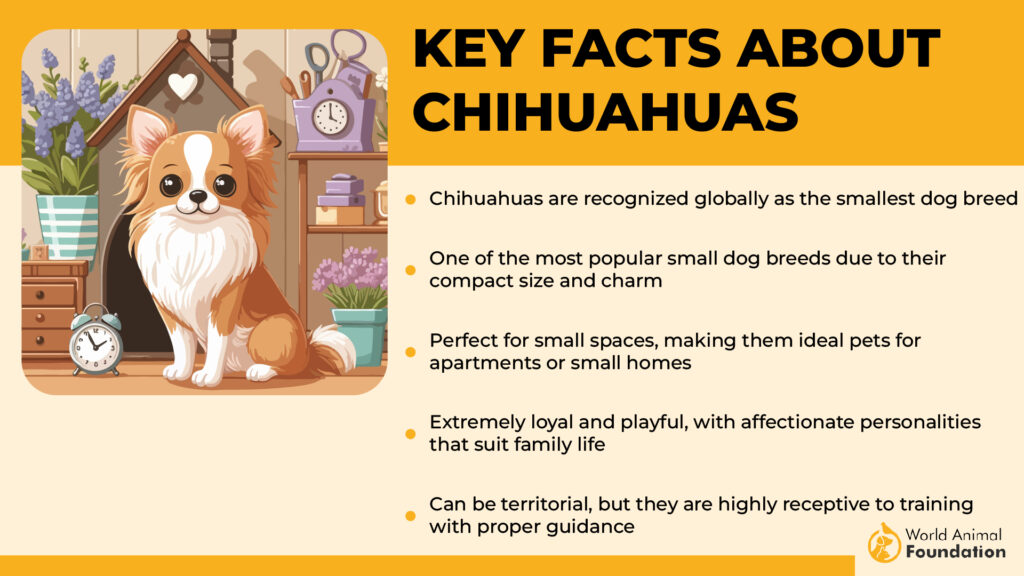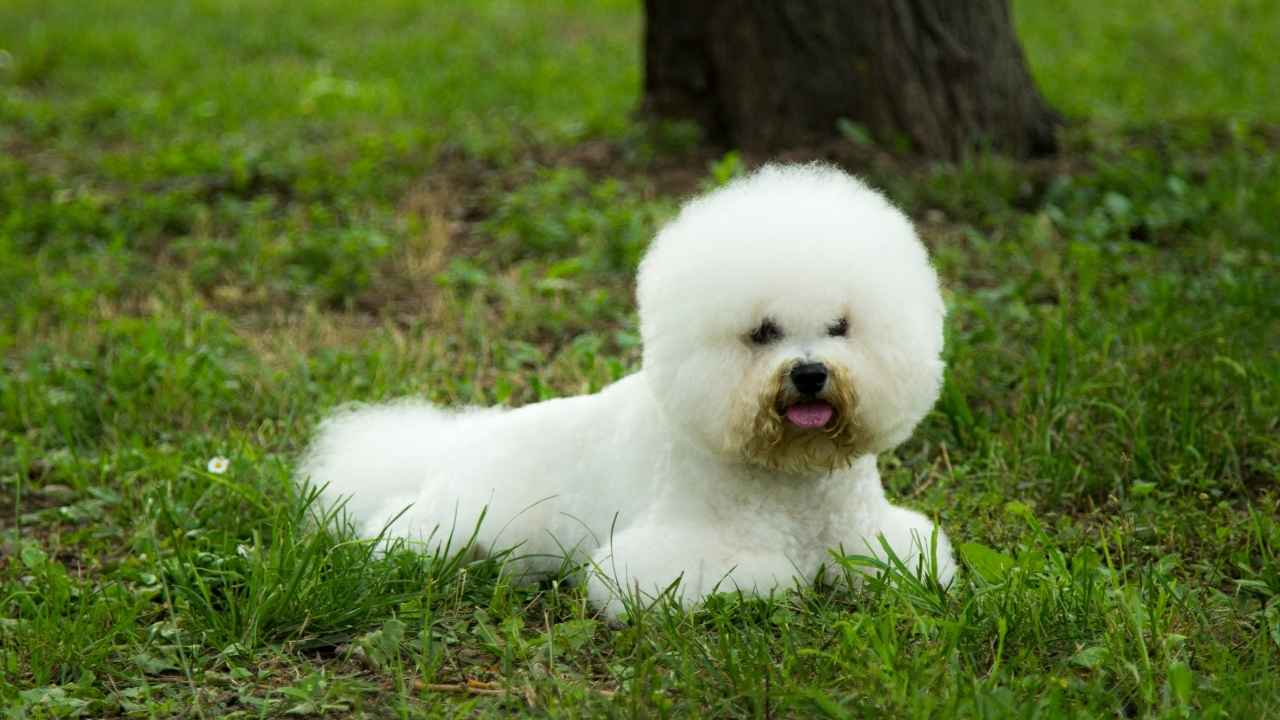When choosing a canine companion, it’s essential to consider their health and longevity. Small dog breeds often attract pet lovers due to their compact size and engaging personalities, but health remains a paramount concern. The seven healthiest small dog breeds with minimal health problems offer not only vibrant companionship but also the peace of mind that comes with fewer vet visits and a longer life span. This guide explores these hardy breeds, known for their robust genetics and resilience, ensuring that your cherished little friend remains a healthy and joyful part of your family for years to come.
When it comes to choosing a dog, health is a top priority for every responsible pet parent. Small dog breeds, often viewed as the perfect companions for families, are no exception. But how do you ensure that the adorable pup you bring home has a long and healthy life? The truth is, that not all small dog breeds are created equal in terms of health.
While some come with fewer hereditary health problems and fewer trips to the vet, others may face serious health conditions that can shorten their life expectancy. That’s why we’ve compiled a list of the 7 healthiest small dog breeds, each one chosen not only for their longevity but also for their ability to thrive in a home environment.
If you’re searching for a dog that will stay by your side for years to come, read on to discover the perfect breed for you.
Healthiest Small Dog Breeds
Now that we know the importance of choosing a healthy dog breed, let’s look at 7 small dog breeds that are known for their great health. These breeds tend to live longer, have fewer health issues, and are perfect for pet parents looking for a dog that can be a true companion.
1. Havanese
The Havanese is often considered one of the healthiest small dog breeds, making it an excellent choice for responsible pet owners seeking a loyal companion. Known for its playful nature, the Havanese is generally a healthy breed with a low incidence of genetic disorders, unlike some other purebred dogs.
According to the American Kennel Club, this breed has an impressive life expectancy of 14 to 16 years, which is relatively long for small dogs. It is also less prone to conditions like hip dysplasia, which can affect some large-breed dogs. Regular mental and physical stimulation can further improve its overall well-being, contributing to its healthiest small dog status.
When choosing a Havanese, it’s important to find a reputable breeder who follows responsible breeding practices to avoid potential health issues. This breed’s cheerful disposition and strong health traits make it a wonderful option for families or first-time dog owners.
2. Chihuahua
The Chihuahua is a popular choice among small dog lovers, known for its big personality packed into a tiny frame. When it comes to health, this breed generally enjoys a long life expectancy, often living well into their teens, with some reaching up to 20 years.
While Chihuahuas are considered relatively healthy dogs, they can be prone to certain health issues like dental problems and patellar luxation. However, these conditions are typically manageable with proper care and regular vet visits. As a toy breed, the Chihuahua’s low-maintenance health and minimal grooming needs make them an easy companion for any pet owner.
According to PetMD, responsible care and mental stimulation can help prevent many common health concerns. It’s important to note that Chihuahuas can be a great fit for people looking for a true companion dog, as they form strong bonds with their owners, offering love and loyalty.
3. Shiba Inu
Shiba Inu is known for its strong, independent nature and active lifestyle, with a life expectancy of 12-15 years. As one of the small breeds, the Shiba Inu has fewer genetic health issues compared to other pedigree dogs.
This breed tends to be naturally fit, but regular exercise and mental stimulation are essential to keep them healthy and happy. According to UC Davis, Shiba Inus have a low incidence of hereditary health conditions like hip dysplasia, making them a relatively healthy breed.
While they have a bold, guard dog demeanor, they are also known to be excellent canine companions when treated with care. With their fox terrier-like energy and intelligence, the Shiba Inu requires an experienced, responsible pet owner who can provide the necessary mental and physical stimulation to maintain their health and well-being.
4. Bichon Frise
The Bichon Frise is known for its cheerful and energetic personality, making it one of the most popular breeds among dog owners. This small dog breed is generally considered healthy with fewer genetic issues compared to other breeds and has a life span of 12-15 years.
However, they can sometimes face certain health conditions, such as allergies and dental issues, but these are often manageable with proper care. Regular veterinary check-ups and maintaining a healthy weight can significantly improve their longevity. Bichon Frises are easy to train and are well-behaved, making them excellent companions for families or individuals.
With their high prey drive, they may need to be supervised around small animals. Due to their small size and energetic nature, they thrive in environments where they receive enough physical and mental stimulation, which ensures they stay happy and healthy throughout their dog’s life.
5. Beagle
The Beagle is known for its well-rounded health, benefiting from an active lifestyle and regular mental exercise. As a working dog, Beagles require a consistent exercise routine to maintain their physical health. While generally healthy with a life span of 12-15 years, they can suffer from ear infections due to their floppy ears, and regular cleaning can help prevent this.
Heartworm prevention is also crucial for their well-being. As they age, older dogs may face common health issues like gum disease or even bone cancer, but with proper veterinary care, these conditions are manageable.
They are great companions, and whether they’re interacting with other pets or keeping you company as fur babies, they remain healthy throughout their dog’s life, ensuring they thrive well into their old age.
6. Dachshund
The Dachshund is a small dog breed known for its unique body shape, which unfortunately makes it prone to back health issues. Due to their long spine and short legs, Dachshunds tend to experience back problems like intervertebral disc disease (IVDD). To ensure a healthy life, it’s essential to avoid activities that stress their back, like jumping from heights.
Additionally, maintaining a healthy weight is crucial to avoid putting extra strain on their spine. Regular dental health care, including brushing their teeth, is also important, as little dogs like the Dachshund are susceptible to dental issues.
These health concerns are preventable with a responsible approach to vet care and maintaining a safe environment for your pet. Despite their health challenges, Dachshunds can lead a long and happy life with the right care and a life span of 12-16 years.
7. Lakeland Terrier
The Lakeland Terrier is a healthy breed, known for its low susceptibility to inherited health conditions compared to many other purebred dogs. Interestingly, some of their resilience can be attributed to the careful selection of genes from mixed-breed ancestry, contributing to their strong health.
Like the Cairn terrier or Boston terrier, Lakeland Terriers tend to enjoy a long and healthy life of 12-16 years, aided by their active nature. Regular physical exercise not only promotes their physical health but also boosts their mental stimulation, ensuring they remain sharp and full of energy.
Their short coat simplifies grooming, reducing the need for frequent care. Keeping them active and engaged, along with regular vet care, ensures they live longer, healthier lives. They get along well with other dogs and make wonderful companions to thrive well into their later years.
Conclusion
While selecting a healthy dog breed like the ones we’ve discussed can set the foundation for your pet’s well-being, it’s the everyday care you provide that truly impacts their health.
Regardless of whether you’re bringing home a mixed breed, a pedigree dog, or a playful small breed, ensuring their physical health, and mental stimulation, and addressing any health concerns early on can make all the difference.
As a responsible dog owner, it’s crucial to remain proactive and knowledgeable, making sure your dog enjoys a long, healthy life filled with happiness and vitality.
In conclusion, choosing one of the healthiest small dog breeds can be a rewarding decision for potential pet owners seeking companionship with minimal health concerns. Breeds such as the Chihuahua, Dachshund, and Border Terrier are known for their robust health and longevity, often avoiding many of the common hereditary ailments seen in other breeds. These dogs not only offer the advantage of fewer veterinary visits but also provide endless love and companionship. Prioritizing a breed with minimal health problems ensures a happier, healthier life for both the dog and its owner, fostering a long-lasting and joyful relationship.










